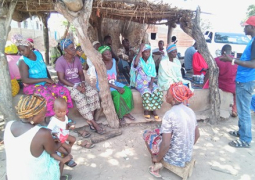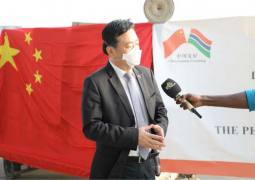Many Gambians, the report continued, believed that people who had high government jobs were getting richer as they owned nice houses, expensive cars and sent their children to university in Europe and America to get better education while the rest of the people could not afford it.
The report added that the Gambian people at the time, felt that instead of using government money to help the poor people, top government officials used the money for their own benefits.
As a cause of the above mentioned, the report said one group that was unhappy with the government was the Gambia National Army who believed that they were treated badly.
In 1994, the report narrated, five young officers in the army, with former President Yahya Jammeh as their leader, decided to commit treason by removing Jawara’s government by force as they convinced many others to join their unlawful plan.
However, the report noted that in most cases, when soldiers become rulers, they become dictators, noting that many times, anyone who disagrees with them is treated very badly. “They are either arrested, beaten, tortured or even killed.”
The report went further saying that when the AFPRC took over the Gambian government, they promised Gambians that they would not do such things. They promised to only rule for two years and then allow people to conduct an election to choose a new civilian president.
Moreover, the report explained that former President Jammeh and his group soon broke their promises just a few days after they took government on a coup. “They started to arrest people and detain them unlawfully.
Additionally, they removed many laws that they did not like in the constitution. “They made their own rules called Decrees and misused the laws. Jammeh and the AFPRC started to commit serious human rights violations,” said the report.
Part of the findings made by the TRRC, after establishing those Decrees was that the AFPRC gave themselves powers to do anything they wanted, even if the law did not allow them to do it.
The TRRC findings continued that things got worse very quickly as one night in September 1994, Sanna Sabally, Edward Singhateh, Yankuba Touray, Sadibou Hydara and their assistants went to Mile 2 where the people they arrested were being kept.
In order to scare the prisoners, the TRRC findings said the soldiers took some of them away from the others and told them to say their last prayers making them think they were going to be killed.
During that activity, the TRRC finding pointed out that the soldiers fired gunshots so that the other prisoners who were left in the cells would think that the others had been killed and that they would be next.
“Everyone was very scared. For the ones who were taken outside, the soldiers continued to scare them by placing pistols in their mouths and threatening to kill them. Some of the prisoners who were elderly and respected people were seriously beaten too,” the report revealed.



